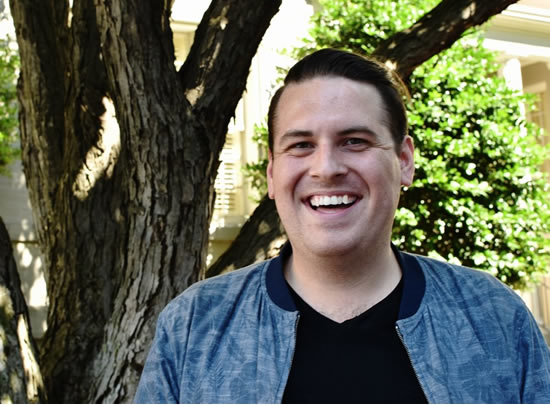Trans studies scholars set sights on future
 With generous seed funding from Dean E. Patrick Johnson, TJ Billard, associate professor of communication studies and executive director of the Center for Applied Transgender Studies, organized and hosted in September the second International Trans Studies Conference, which took place at Northwestern. The conference was the backdrop to announce the founding of the International Transgender Studies Association, the official professional society for the field, for which Billard will serve as chair of the bylaws drafting committee.
With generous seed funding from Dean E. Patrick Johnson, TJ Billard, associate professor of communication studies and executive director of the Center for Applied Transgender Studies, organized and hosted in September the second International Trans Studies Conference, which took place at Northwestern. The conference was the backdrop to announce the founding of the International Transgender Studies Association, the official professional society for the field, for which Billard will serve as chair of the bylaws drafting committee.
“This moment marks a turning point in the development of a truly international field of transgender studies,” Billard says. “Historically, trans studies scholars have struggled to define the significance of their work in ‘home’ disciplines that perhaps don’t value trans people and topics, and most of this work has been centered in the United States and Europe. The founding of the International Transgender Studies Association brings trans studies scholars together under a unified banner and does so with an explicit emphasis on global unity.”
Billard adds: “Our goal is to foster an inclusive association that erases the boundaries between disciplines and spans the boundaries that traditionally divide knowledge production so we can advance the academic study of trans life in ways that meaningfully impact both scholarship and real-world conditions for trans people globally.”
In planning the conference, Billard activated a six-person organizing committee and a 50-person steering committee consisting of trans studies scholars working on all six inhabited continents and including the editors of all four trans studies journals. Through securing additional funding from the Ford Foundation, the TAWANI Foundation, and countless academic units across Northwestern, the University of Chicago, Loyola University Chicago, DePaul University, and University of Illinois, Urbana-Champaign, Billard and collaborators grew the conference into a major endeavor. In the end, it welcomed over 800 attendees, over 550 of whom attended in person at the Northwestern Technological Institute, making this the largest trans studies conference in history.
“The last time this conference was held was in 2015 and the scale of that first conference was much smaller than this one,” Billard says. “The scale of this conference is a testament to just how much trans studies has grown as a field and to just how eager trans studies scholars are for a real sense of community. To have such a diverse group of scholars from around the world gather—whether in person or virtually—was transformative for so many of us, both personally and intellectually.”
Across the 120 conference sessions, 15 caucus meeting, and three evening receptions, conference attendees “planted the scholarly seeds and forged the interpersonal networks that will grow into a bountiful field,” Billard explains. Additionally, the conference was one of the most accessible of its kind, with on-site childcare, simultaneous translation across all of the official UN languages, and a fully hybrid conference experience so those unable to travel to the United States could nonetheless participate fully.
